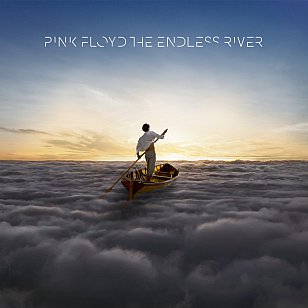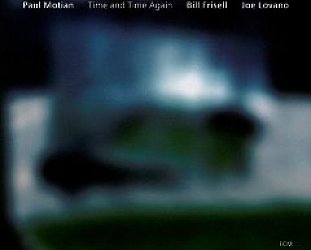Graham Reid | | 2 min read
Pink Floyd: Things Left Unsaid

Because Pink Floyd have been around so long and went through various phases and stages, it's probably helpful for any reviewer of this album – identified by guitarist/prime mover David Gilmour as their farewell – to say clearly which era was their Floyd-of-Preference.
I was there for their first singles and although I can't say I heard every song or album at the time since, I've certainly heard just about everything they've done.
For me then it was the Syd Barrett-era with its bent pop and tripped-out jams, then that early period before Dark Side (especially some of those soundtrack albums and the longer instrumental pieces). And even though I didn't have a copy of Dark Side until a few years ago (Who needed one? You could know it backwards by vicarious listening) I always enjoy hearing it, on the rare occasions I play it.
As to Wish You Were Here and Animals, I have been considerably less attached . . . and The Wall I consider one of the most bleakly unlistenable, dyspeptic and self-pitying albums in rock. And it's a bloody double.
The Final Cut was hopeless, but I didn't mind much of Momentary Lapse and The Division Bell.
So it seems in retrospect I always preferred their instrumental passages to most of the songs with lyrics by Roger Waters, and probably even Gilmour and his wife Polly Samson on Division Bell.
Which suggests that The Endless River – mostly instrumental and in one of the worst covers of their career – should be my album.
And in fact, it mostly is.
The story behind it is told here by one of the co-producers Phil Manzanera and one of his most telling comments is that the premise he adopted was, “What would Pink Floyd fans like to hear?” and that the album is “a sort of chill-out goodbye and very much a hybrid”.
That is undeniably true because – conceived as four rather short sides of vinyl – it opens at a leisurely pace (the late Rick Wright's voice in the distance) and a kind of slow atmosphere is established across the first two pieces which segue together (sounding not dissimilar to Vangelis' work in Bladerunner) before becoming quite obviously “Pink Floyd” with Sum which opens the second side.
By this point Gilmour's guitar has become more predominant (as a salute to keyboardist Wright gently allows him to get considerable space, and he his first writing credit in decades).
From here on archetypal Floyd – from Echoes to Dark Side and obviously Division Bell from which some of this raw material was sourced – is more predominant. Oh, those gloomy chords which make up the one-minute Unsung!
There is some redundant stuff around (the drum-driven Skins), some music which could make you comfortably numb given application of the right medicine and other passages which are sublime and elegant.
The closing track – the only one with vocals, if we discount sampling of Stephen Hawking – seems to address their disputatious career: “We bitch and we fight . . . but this thing we do . . . is louder than words”.
It's interesting on an album with titles like Things Left Unsaid, It's What We Do and The Lost Art of Conversation.
Probably not enough for Waters to make a phonecall, but no less true for that.
So is this a good Pink Floyd album, a
hybrid-Floyd as fans want to hear them in their old age (both us and
them) or just a pastiche?
I'm going to hedge my bets as I do when
someone bangs on about the greatness of Wish You Were Here or
Animals.
I'm going to say it's all of the above.
I hear passages which are very beautiful, and others where I think, “Oh yeah, but that's just them being Pink Floyd as Gilmour did on Momentary Lapse”.
After Waters left the band I did an interview with David Gilmour when he surprised everyone by resurrecting the band name for Momentary Lapse. He was in litigation with Waters over the use of the Floyd name (fair enough maybe, he'd been the last to join and barely wrote a lyric).
The article ran under the heading: It's Floyd Jim, but not as we know it.
This time? It's Floyd Jim, much as you know it.
There are archival Floyd interviews, outtakes and a career overview (and more) at Elsewhere starting here. And co-producer of The Endless River Phil Manzanera is interviewed here.





David Trubridge - Nov 10, 2014
I think you have got this all the wrong way round Graham! This album is an total Floyd cliché. Waters was the guts, the innovation and passionate commitment of the group (post Barrett) and when he left all that remained was technical repetition of familiar guitar riffs. Gilmour's Division Bell and the rest are dour and empty, living off the past - quite the opposite to Waters' brilliant and heart rending Amused to Death. So there! GRAHAM REPLIES: Ah, sorry. I stand corrected. I shall now go sit in the naughty corner and listen to The Bloody Awful And Interminable Wall. Twice!
Savepost a comment